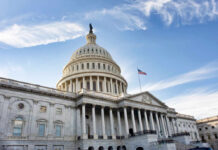
Six college professors from California have initiated a lawsuit against the state’s diversity, equity, inclusion, and accessibility (DEIA) guidelines. The plaintiffs argue these regulations infringe on their First and Fourteenth Amendment rights. Represented by the Foundation for Individual Rights and Expression (FIRE), the suit was filed in federal court, underlining that the mandated DEIA perspectives have no relevance in some academic disciplines.
Bill Blanken, a chemistry professor from Reedley College, raised a poignant question: “What’s the ‘anti-racist’ perspective on the atomic mass of boron?” The lawsuit echoes his concerns, stating Blanken’s viewpoint that implementing DEIA in his chemistry classes would be “pedagogically unsound and disruptive.”
LAWSUIT: @TheFIREorg and 6 tenured professors sue to stop California from requiring teachers to teach diversity, equity, inclusion (DEI) https://t.co/462XUvRCaw
— David Lam (@DavidLamNTD) August 17, 2023
The lawsuit has drawn national attention, and the plaintiffs have gained notable support from fellow educators and constitutional advocates. The heart of the matter revolves around the idea that professors might be disciplined or dismissed if they fail to align with the state’s DEIA requirements.
The guidelines, as put forth by the state, demand professors to understand “the intersectionality of social identities” and the challenges minority groups face. FIRE’s attorney, Daniel Ortner, criticized the guidelines: “The government is forcing professors to teach and preach a politicized viewpoint they do not share, imposing incomprehensible guidelines, and threatening to punish professors when they cross an arbitrary, indiscernible line.”
To fuel the fire, an official glossary released by the state seems to interpret “anti-racism” extremely specifically, suggesting that anyone claiming neutrality with the phrase “not a racist” is simply in denial. It further claims that the concept of merit is deeply entrenched in “whiteness.” It posits, “Merit protects White privilege under the guise of standards … and as highlighted by anti-affirmative action forces.”
California College Professors Sue Over State DEI Requirements https://t.co/BFtqrrkUye
— Bob (@Bob72270) August 22, 2023
These assertions raise eyebrows, especially among educators who believe academic freedom should be preserved. Loren Palsgaard, an English professor at Madera Community College and one of the plaintiffs, points out that “teaching all sides of an issue is not ‘weaponizing’ academic freedom. That’s just called ‘education.’”
The lawsuit’s filing has sparked a nationwide debate on the role of DEIA in academia, the limits of state intervention in educational content, and the potential suppression of professors’ First Amendment rights.
While DEI initiatives have their merits in fostering a more inclusive environment, the crux of the matter remains: should educators be forced to espouse specific ideologies, especially when they believe it doesn’t enhance or pertain to their courses?













